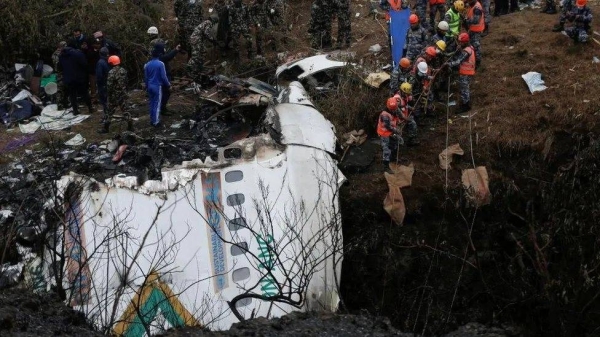
BEIRUT, June 20 (Reuters) - The European Union"s foreign policy chief said on Sunday a fight among Lebanese leaders to secure power is at the heart of its government crisis and he urged them to set their feud aside and form a cabinet or risk a total financial crash and sanctions.
Speaking after talks with President Michel Aoun, Prime Minister-designate Saad al-Hariri and House Speaker Nabih Berri, Josep Borrell said he delivered a frank message that some leaders could face sanctions if they continued to block steps to form a new government and implement badly needed reforms.
"The country is in big financial trouble and in order to solve the economic crisis they need a government," he said. "A ship in the middle of a storm, needs a captain, needs a crew for the system to work ... If not the ship will sink."
"It is clear it"s a fight for the distribution of power. I have to say there is also strong mistrust," he told a group of reporters before leaving Beirut.
Borrell said Lebanon needed a government with technical capacity and real authority to avoid the failure of the outgoing government of Hassan Diab, which he said presented a sound financial reform plan that was blocked by politicians.
Lebanon"s currency has lost 90% of its value. More than half the population are living in poverty while grappling with raging inflation, power blackouts and shortages of fuel and food.
The crisis has been aggravated by political deadlock, with Hariri at loggerheads with Aoun for months over forming a new government.
Borrell said foreign aid would not flow without a government that engaged with the International Monetary Fund and delivered reforms to tackle corruption and mismanagement of funds. But he said the leaders he met were pessimistic about making progress.
He said a failure to act would drive down foreign reserves and leave the nation without foreign exchange to pay for basic goods or to prevent its hospitals running short of supplies.
He said his talks highlighted deep divisions among Lebanon"s sectarian communities, whether Christian, Sunni or Shi"ite Muslim, or Druze, and the way power was shared. "This country has a clear problem with its governance system," he said.
Sanctions have been threatened in an effort by some EU states, led by France, to push politicians to end the deadlock.
An EU diplomatic note seen by Reuters showed criteria for imposing possible sanctions were likely to be corruption, obstructing efforts to form a government, financial mishandling and human rights abuses. read more
The bloc has yet to decide on its approach. Paris says it has restricted entry to some Lebanese officials it sees as blocking efforts to tackle the crisis, without naming them.
"The sanctions are a possibility that is going to be considered, and we would like very much not to use. But we cannot stay like this," said Borrell, who reports back to EU foreign ministers on Monday.












